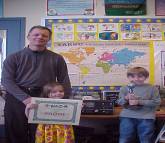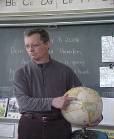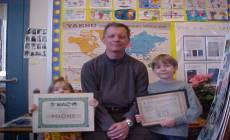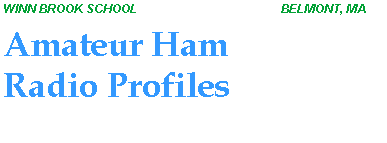
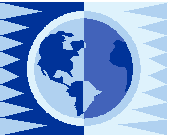
|
Meet Mr. Donald Ickes K9PTQ/VE3
Communicating from the Canadian wilderness to the world
For nearly three months every year ham radio operator Donald Ickes (handle Don) – grandfather of Austin and Amelia Ickes -- provided the only communications out to the world from a remote location in Northwestern Ontario. For the remaining nine months of the year Owakonze, Ontario (QTH) had a population of 2, but in the summer the population jumped to 250 to 300 people. Owakonze was a summer camp where boys and girls learned the skills to take canoe trips deeper into the Canadian wilderness – sometimes into the arctic. K9PTQ, operating as a guest ham radio station in VE3 land (Ontario), was the only way these people could send and receive messages of all kinds.
Twice a day at specific times (called a SCHEDULE) K9PTQ/VE3 would call a network (called a NET) of radio hams located in many places in the United States and Canada. These hams received messages from the people at Owakonze; then sent them on to the right people. They would also gather messages from people all over the United States, Canada, and often foreign countries in Europe for people at Owakonze.
What kinds of messages and information were communicated in this way? The answer: almost everything. We ordered food and fuel, spare parts and other supplies, special treats (watermelons and ice cream), things we needed for our canoe trips, medical supplies, even visits on Sundays by priests and ministers. We also sent and received birthday greetings and other kinds of important personal messages. Any message that can be sent over a telephone we sent by ham radio.
Sometimes we had to send special urgent messages. If somebody became very sick or injured we would have to call for a special airplane that can land on water to fly in to take the person out to a hospital. Sometimes we would discover forest fires and would call the Ontario Department of Lands and Forests to tell them about the fire so they could put it out.
On most days we could make contact with at least one ham operator in the NET, and could hear their voice signal and they could hear ours. When the radio was clear and loud we would say the signal was “5 by 5”. At other times when the signal was too weak or weird to use the voice microphone K9PTQ would have to use Morse code. Morse code, the universal alphabet using combinations of dots and dashes, is much slower to use, but is far easier to hear when radio conditions are bad.
Every day would begin a 7:00 AM when I would start a generator to create the electricity necessary to power the ham radio receiver and transmitter. My father would say “ W9WKU, W9WKU, this is K9PTQ, portable VE3 calling on schedule, come in please” W9WKU and other hams in the NET would answer back, exchange messages and if there was time catch up on other news. How hot was it in Chicago? Did the Cubs win? Did you hear that new Beatles song? The SCHEDULE would end with each of the hams saying, “73s and out . . .” (Until we talk again, goodbye . . .)
Every day would end after the night schedule when I would shut down the generator, then walk back through the complete darkness and silence. I would say “73s and out” to my parents and brother and sister and go to sleep with the sounds of the loons echoing down the lake.
©Natasha Bochkov, M.C.S., Martin Bayes, Ph.D., and Donna LaRoche, M.Ed |
